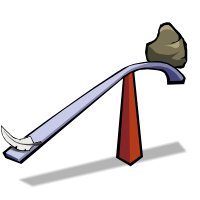You
must have heard of the Paretto Principle (also known as the 80/20 law). Rubbish?
That is right. I do not remember the exact words but I am darn SURE that I had
made a similar comment when I was first discussing this principle with a live
person (not a book). What is this principle anyway and what’s it doing here
within a discourse of sales & marketing of capital equipment? The principle states that 80% of your input
is responsible for 20% of your output and the balance 20% of your input brings
about the other 80% of your output. And let me also tell you ..IT WORKS with
approximations of-course.
If taken into selling, the principle will state that 20% of your business
comes from 80% of your customers and the balance 80% of your business comes
from 20% of your customers. This is valid principle everywhere but when you are
selling high value equipment, the South East Asian Market is just a little
different.
- · 10% of your customers can bring you 0-20% of your business revenue.
- · 30% of your customers will bring you 80%-60% of your sales output.
- · 60% of your customers will bring you 20% of your sales revenue.
This
is one of the main differences that at any time you will always have a joker
(or two jokers; God forbid). What does the joker do? The Joker is something you
can never rely on until you get the Purchase Order. Nevertheless, why? You will
ask. Is he a sadist? Does he get pleasure from seeing you as a victim of tensile and
compressive forces? That’s not it friends? A Joker is someone to whom a
business commitment means nothing. He is so whimsical that he can take an approach
at 180 degree to the original at the last minute. For the joker, money counts,period.
I don't say that the joker can stop your orders. If you have been true to the marketing principles and if your offer is suitable,
you can bring him around, but your target date is already gone. So,
how do you defeat the joker in his own game? You don’t. The only thing you do is to keep an allowance
for him. Never underestimate the joker. He has got enough clout to stop all
your orders. Be on good terms with him.
This
is how you should think of devoting time when you are fixing up strategy. And,
unfortunately in SE Asia, directors’ do not plan as a team. Unless you play as
a team and so get them all-in (up to Dy. Manager level). Tell them the
strategy. Ask for feedbacks. Do this and you will be shocked. You will realize
that you have huge creativity with you.. The fact is that you have failed to
tap it. How you tap it is the key here!
Finally,
do not ever make heroes of your sub-ordinates or encourage them to be heroes.
In Capital Equipment Marketing, heroes are losers . We once more quote an
actual general Gen. Patton. Gen.Patton just before his victorious run is
supposed to have said to his troops “Remember, no bastard ever won a war by
dying for his country, he won it by making the other poor dumb bastard to die
for his country”. There are no heroes in a marketing victory. Everyone has to
contribute to it. If not, run for your life because you are about to be
annihilated. What you are feeling is the eye of the hurricane!
Cheers then folks,
Till the next time
it's BILBO




